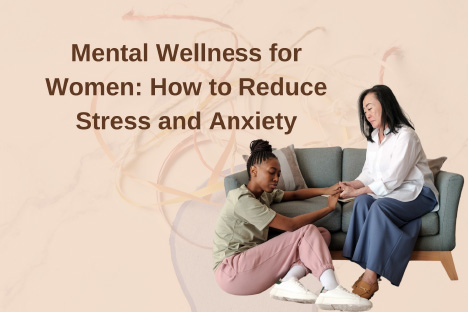Not Getting Enough Sleep? – The Amazing Power of Sleep and Why it Matters

In our fast-paced, modern world, sleep often takes a back seat to work, social commitments, and the ever-present glow of screens. We often underestimate the profound importance of sleep in our lives. In this article, we’ll explore the reasons why not getting enough sleep is a necessity for overall well-being.
1. Physical Health: The Foundation of Wellness
Getting enough sleep is the cornerstone of good health. While we rest, our bodies engage in vital restorative processes. These include tissue repair, muscle growth, and immune system strengthening. A consistent lack of sleep can weaken our immune system, making us more susceptible to illness.
It also plays a crucial role in maintaining a healthy weight. When we’re not getting enough, our bodies produce more ghrelin, a hormone that stimulates appetite, and less leptin, a hormone that suppresses it. This imbalance can lead to overeating and weight gain. It can also affect our body’s ability to regulate blood sugar, increasing the risk of diabetes.
2. Mental Clarity and Cognitive Function
A good night’s sleep is essential for optimal cognitive function. During sleep, the brain consolidates and organizes memories, allowing us to retain information and learn efficiently. Adequate rest also enhances problem-solving skills, creativity, and critical thinking.
Conversely, sleep deprivation can lead to difficulties in concentration and decision-making. It affects mood and emotional regulation, leading to increased irritability and a heightened risk of anxiety and depression.
3. Emotional Resilience and Stress Management
Quality sleep plays a pivotal role in emotional well-being and stress management. A well-rested mind is better equipped to handle life’s challenges. It allows us to process and consolidate our emotions, preventing feelings of overwhelm and emotional exhaustion.
Conversely, sleep deprivation can amplify stress levels, leading to a vicious cycle. High-stress levels, in turn, make it more difficult to fall asleep and stay asleep, creating a detrimental loop of sleeplessness and stress.
4. Cardiovascular Health
Adequate rest is vital for maintaining a healthy heart. Chronic sleep deprivation has been linked to an increased risk of heart disease and hypertension. When we snooze, our blood pressure and heart rate naturally decrease, providing much-needed rest for the cardiovascular system.
5. Physical Performance and Exercise Recovery
For athletes and fitness enthusiasts, rest is a critical component of physical performance and recovery. During deep sleep, our bodies release growth hormone, which aids in muscle repair and growth. It also regulates our body temperature, energy balance, and immune function, all of which impact exercise performance.
Inadequate sleep can lead to decreased stamina, slower recovery times, and an increased risk of injury. It can also reduce motivation and hinder training progress.
6. Longevity
There is evidence to suggest that sleep may be linked to longevity. While more research is needed in this area, a consistent pattern of inadequate rest has been associated with a higher mortality rate. The reasons for this connection are complex but may be related to the various ways in which it impacts physical and mental health.
7. Beauty Sleep
The term “beauty sleep” is more than just a phrase. Sleep has a direct impact on our appearance. During deep sleep, blood flow to the skin increases, allowing the skin to repair and renew itself. Collagen production also peaks, helping to maintain skin elasticity.
Chronic sleep deprivation can lead to premature aging, increased wrinkles, and a dull complexion. It can also exacerbate skin conditions such as acne and psoriasis.
8. Immune Defense
A well-rested body is better equipped to fend off infections. While we rest, our immune system releases proteins called cytokines, which are essential in fighting infection and inflammation. Additionally, it helps activate and support the production of antibodies and immune cells.
Conversely, chronic sleep deprivation weakens our immune system, making us more susceptible to illnesses like the common cold and the flu.
9. Safety
Sleep deprivation can have severe safety implications. Drowsiness and fatigue can impair our ability to concentrate, react quickly, and make decisions. This poses significant risks when driving or operating machinery, as well as in professions that demand high levels of attention and focus.

Conclusion: The Art of Prioritizing Sleep
In our modern world, where busyness is often glorified, it’s crucial to recognize the immense importance of getting enough. Sleep is not a luxury; it’s a fundamental requirement for good physical and mental health, emotional well-being, and overall quality of life.
As we navigate our demanding lives, it’s essential to make snoozing a priority. Create a bedtime routine that allows you to unwind and relax, ensure your bedtime environment is comfortable and free of disruptions, and aim for seven to nine hours of rest per night.
Ultimately, it is a precious gift we give ourselves, one that rejuvenates our body, refreshes our mind, and empowers us to face life’s challenges with resilience and vitality. In the quest for a healthy, fulfilling life, let’s not overlook the power of a good night’s rest.










